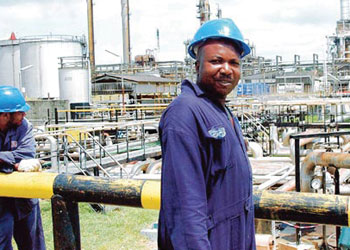Kenya’s bid to become the region’s oil hub has been dealt a blow after its only refinery, Kenya Petroleum Refineries, announced last Friday that it could soon be unable to refine petroleum products due to financial constraints.


Kenya’s bid to become the region’s oil hub has been dealt a blow after its only refinery, Kenya Petroleum Refineries, announced last Friday that it could soon be unable to refine petroleum products due to financial constraints.
Last week, Kenyan media reported that the refinery was seeking to raise Ksh99.6b (about $1.2b) to expand its facilities and increase its crude handling capacity to four million tonnes of crude per year by 2018, from 1.6 million now.
The 50-year old company’s financial shortfalls are due to a dispute with oil marketers, who boycotted its products due to operational inefficiencies and, thus, hurting its operations, reports indicated.
This culminated into fears that the crisis could prompt fuel shortages across East Africa, Mombasa being the main supply route and oil refiner to its landlocked neighbours Uganda, Burundi, the DR Congo and Rwanda.
However, this is neither worrying the Rwandan government nor will it lead to an increase in fuel prices from the current Rwf1050 per litre, government officials said.
"There is no likely impact of this development in as far as our fuel reserves are concerned since we do not refine our oil imports from Kenya,” Robert Opirah, the director of internal trade at the Ministry of Trade and Industry told The New Times yesterday.
"Rwanda has the advantage of importing through both the Northern Corridor (Mombasa) and the Central Corridor, through Dar es Salaam.”
Statistics from the ministry show that whereas Rwanda imports 154,000 cubic meters of oil annually, only 20 per cent transits through Mombasa, while 80 per cent is imported through Dar es Salaam. Therefore, an oil crisis in Kenya would have "no significant impact on Rwanda,” according to Opirah.
"There shall also be no need for price increases as a result. We do not have refineries, but Rwanda imports refined fuel products directly from the Middle East and European suppliers, which are ready for consumption,” he said.
In the run-up to Kenya’s presidential elections in March, Rwanda increased its fuel reserves as a precaution in case violence erupted and disrupted the Mombasa oil route.
The country is also currently undertaking an exploration project in partnership with Vanoil, a Canadian firm, to search for oil in Lake Kivu’s seabed.
The area under survey (along the Rwanda-DRC border) lies in the Albertine Graben, where Uganda and Kenya have made significant oil discoveries.


